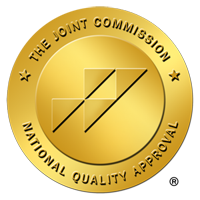Drugs have a far-reaching impact on brain chemistry. Each drug has a different impact on varying systems, but in general, they all change communication and reward systems within the brain.
Consider the following:
Regular Brain
Under normal circumstances, your brain sends out certain chemical signals to reward positive behaviors like:
- Exercising
- Learning new things
- Eating healthy meals
These chemical signals make you feel good, boost your mood, and give you a slightly elated feeling. From there, you are more likely to do those positive things because of the positive feeling you get when you do them.
However, the brain only releases these chemicals for a short time frame, after which the brain reabsorbs them. This ensures the positive feeling is short-lived, and that you are more likely to pursue the positive behaviors that give them.
Drug-Impaired Brain
Now, when you use drugs, those systems get disrupted, among other things.
Instead of sending short doses of things like dopamine to the brain, drugs send large doses. This means that your brain gets an abnormally large amount, something that is significantly higher than you would be able to achieve through healthier means like those listed above.
Additionally, drugs can inhibit the systems in your brain that reabsorb these neurochemicals meaning instead of getting absorbed for a short amount of time, the neurochemicals remain in your system.
Over time, this interferes with your brain’s ability to produce normal resting levels. It also makes it impossible to feel any kind of pleasure or reward from things that should give you elation. Additionally, drugs start to build in your system, and that tolerance means you end up using more doses more frequently, which exacerbates the entire cycle.
Tolerance
There is also the issue of tolerance.
For example:
If you drink caffeine regularly, your body will develop a tolerance to it, which means that the twentieth time you drink caffeine won’t have the same effect caffeine had on your body the first time you ever tried it. So you’ll need to drink more and more, with higher doses.
The same is true of drugs, only the impact is more devastating.
In the long term, drugs can not only inhibit these systems but also cause changes to the structure and function of other parts of your brain. These changes mean that certain areas of the brain responsible for communicating with one another or controlling certain impulses, like risky behaviors, don’t work as effectively. When this happens, you are more likely to engage in risky behavior like continued drug use despite the negative ramifications.
Thankfully, there are ways that you can find treatment.
Getting Help for Drug Addiction with American Detox
How do drugs affect the chemistry of your brain? Drugs affect your brain chemistry in many ways, and our goal is to help you overcome that impact by reversing some of the damage and getting your brain chemistry back to normal.
At American Detox and Treatment Center we provide personalized addiction treatment with dedicated staff available 24 hours a day to help those who are ready to take the next steps.
At our treatment center, we provide individualized environments grounded in compassion and healing. Our programs include over 40 hours per week of:
- Group counseling
- Individual counseling
- Next step preparations
- Comprehensive discharge planning
When you work with our team, we will help you create individualized care plans reviewed by our medical and clinical team on a regular basis so that you have the highest chance of success from the minute you walk through our door.
In each program, we’ll start with our detox center, where you can overcome your withdrawal symptoms and the physical aspect of addiction before moving into your residential treatment, where you can focus on your long-term recovery and overcome the mental aspects of addiction.
If you are ready to get help with addiction, call our team today to start your recovery at 877-834-0775.



